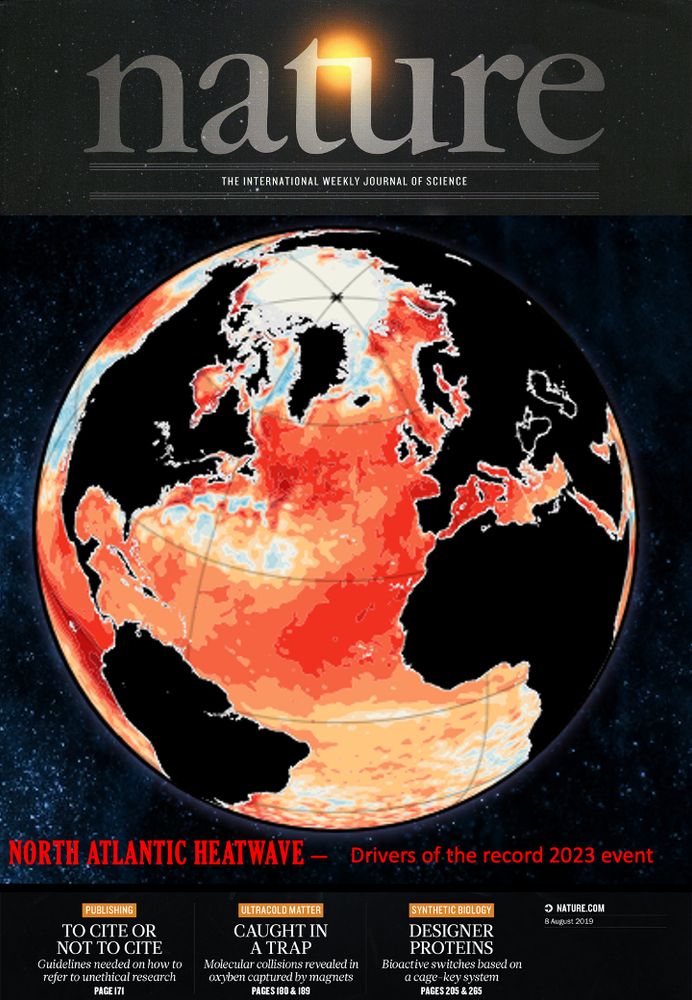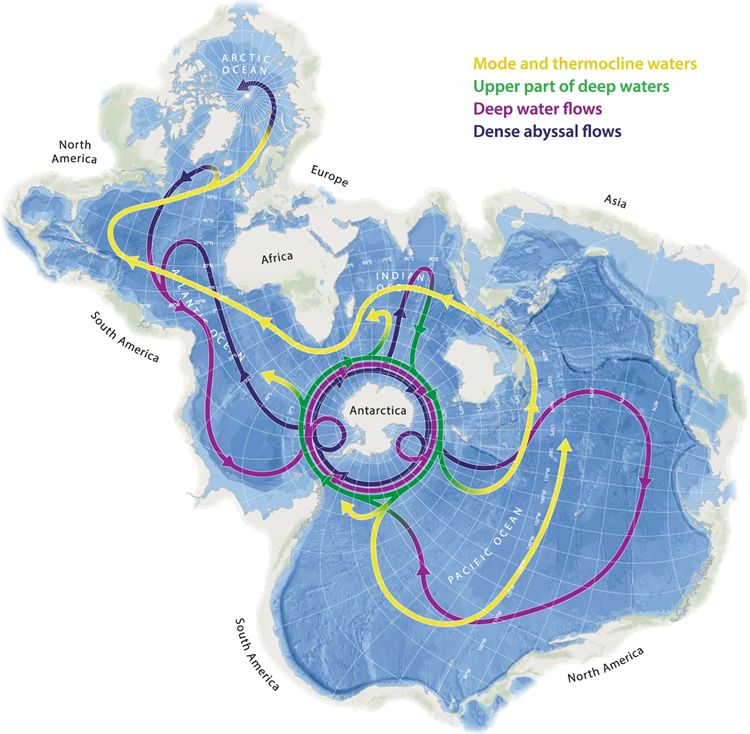
Scientia Prof. of Ocean & Climate Dynamics UNSW Australia | Fellow Australian Academy of Science | CMSI / BEES | Deputy Director ARC Australian Centre for Excellence in Antarctic Science | I study our oceans ice atmosphere and climate 🌊🌎🧊🌍🌤 .. more
Scientia Prof. of Ocean & Climate Dynamics UNSW Australia | Fellow Australian Academy of Science | CMSI / BEES | Deputy Director ARC Australian Centre for Excellence in Antarctic Science | I study our oceans ice atmosphere and climate 🌊🌎🧊🌍🌤
Matthew England is an Australian physical oceanographer and climate scientist. As of 2023 he is Scientia Professor of Oceanography at the Centre for Marine Science & Innovation at the University of New South Wales, Sydney. .. more

Reposted by Matthew H. England


Reposted by Matthew H. England

Reposted by Cyrus Samimi
Reposted by Matthew H. England

#ClimateEmergency
#Antarctica
A panel of Australian scientists, including ACEAS Deputy Director @profmattengland.bsky.social (UNSW), today shared insights about abrupt changes unfolding across the #Antarctic environment at the #COP30 Cryosphere Pavilion.
Watch now: www.youtube.com/live/YjYkKvw...

Reposted by Matthew H. England, Andy Baker

A panel of Australian scientists, including ACEAS Deputy Director @profmattengland.bsky.social (UNSW), today shared insights about abrupt changes unfolding across the #Antarctic environment at the #COP30 Cryosphere Pavilion.
Watch now: www.youtube.com/live/YjYkKvw...
Reposted by Scott C. Doney

Reposted by Matthew H. England
Reposted by Peter Thorne, Matthew H. England

☀️ A team led by Dr @fabiobdias.bsky.social (ACEAS/UNSW) found East Antarctica ice shelves melt in summer bursts as sea ice retreats and warm water flows underneath.
🔗 antarctic.org.au/overlooked-m...
Reposted by Matthew H. England


@profmattengland.bsky.social
6 pumps run the global ocean current.
2 northern pumps are 15% weak #AMOC
4 southern pump are 30% weak #AOC
agupubs.onlinelibrary.wiley.com/doi/full/10....
#TP2.16.2
x.com/bratananium/...
Reposted by Matthew H. England

8. Teleconnections to Other Global Climate Impacts and Tipping Points.
@ryankatzrosene.bsky.social
What happens in the Atlantic doesn't just stay in the Atlantic.
@profmattengland.bsky.social
What happens in the
Antarctic
doesn't just stay in the Antarctic.

